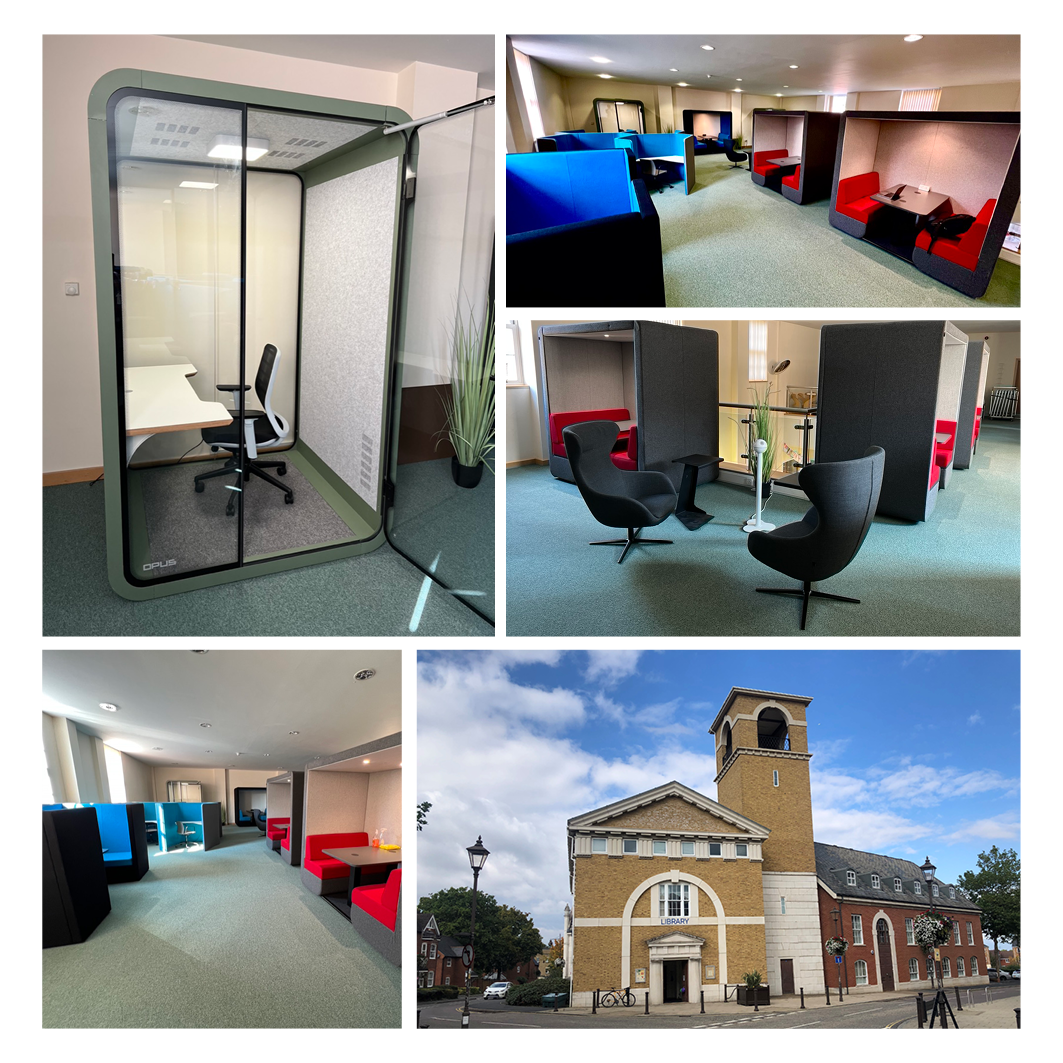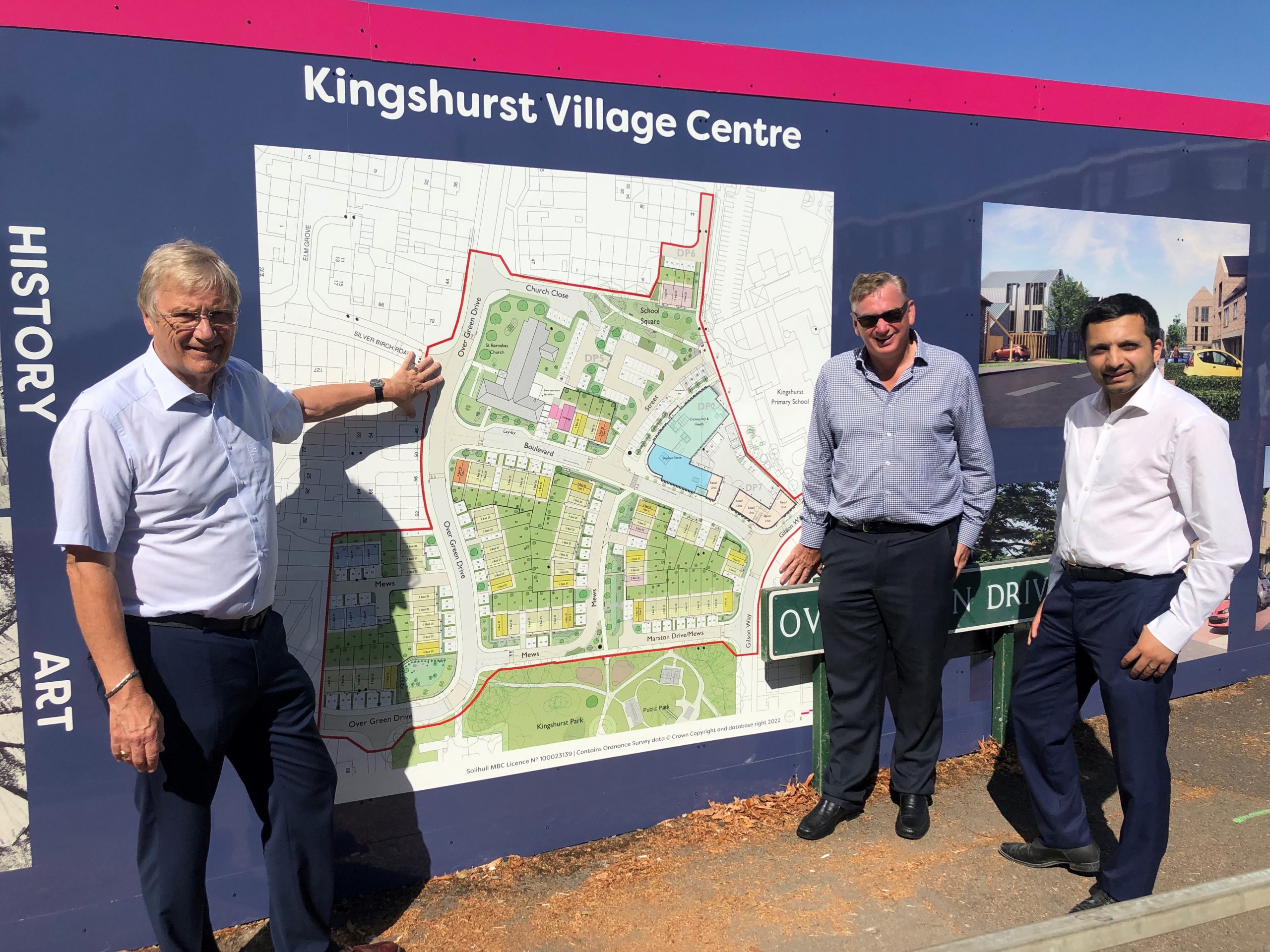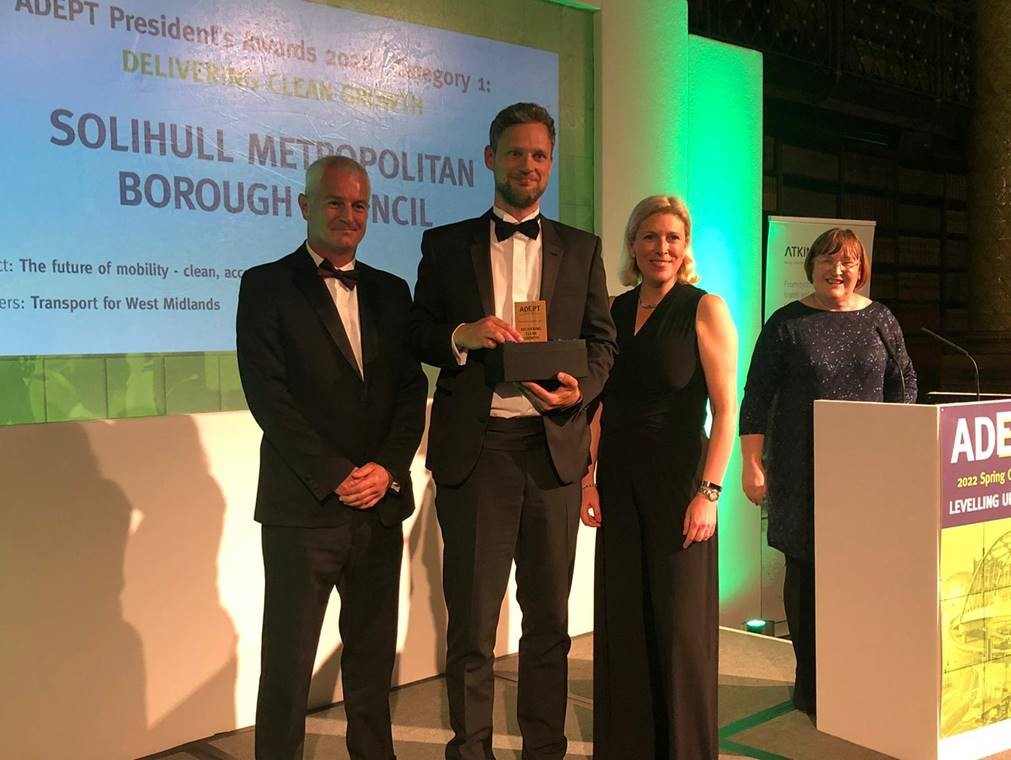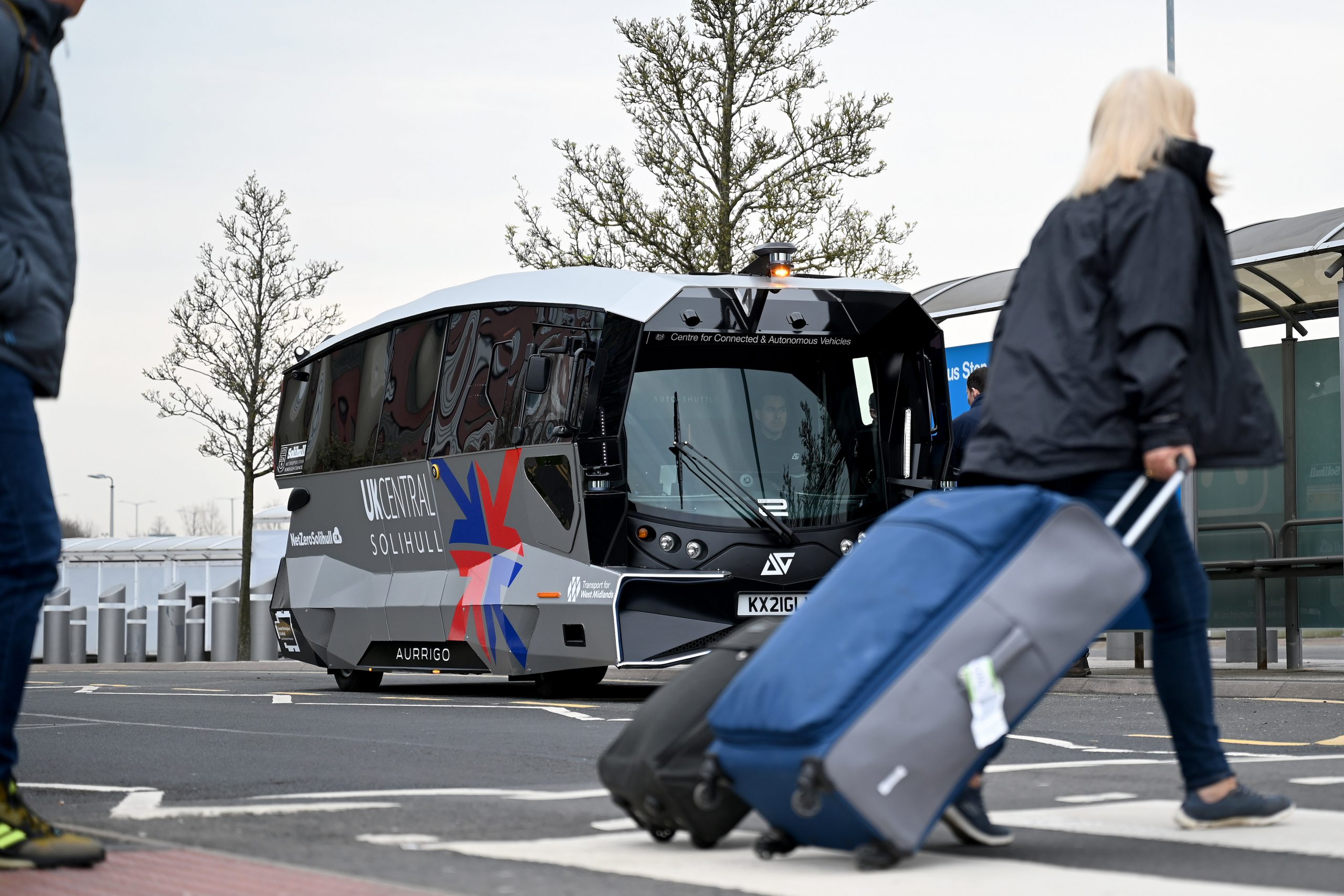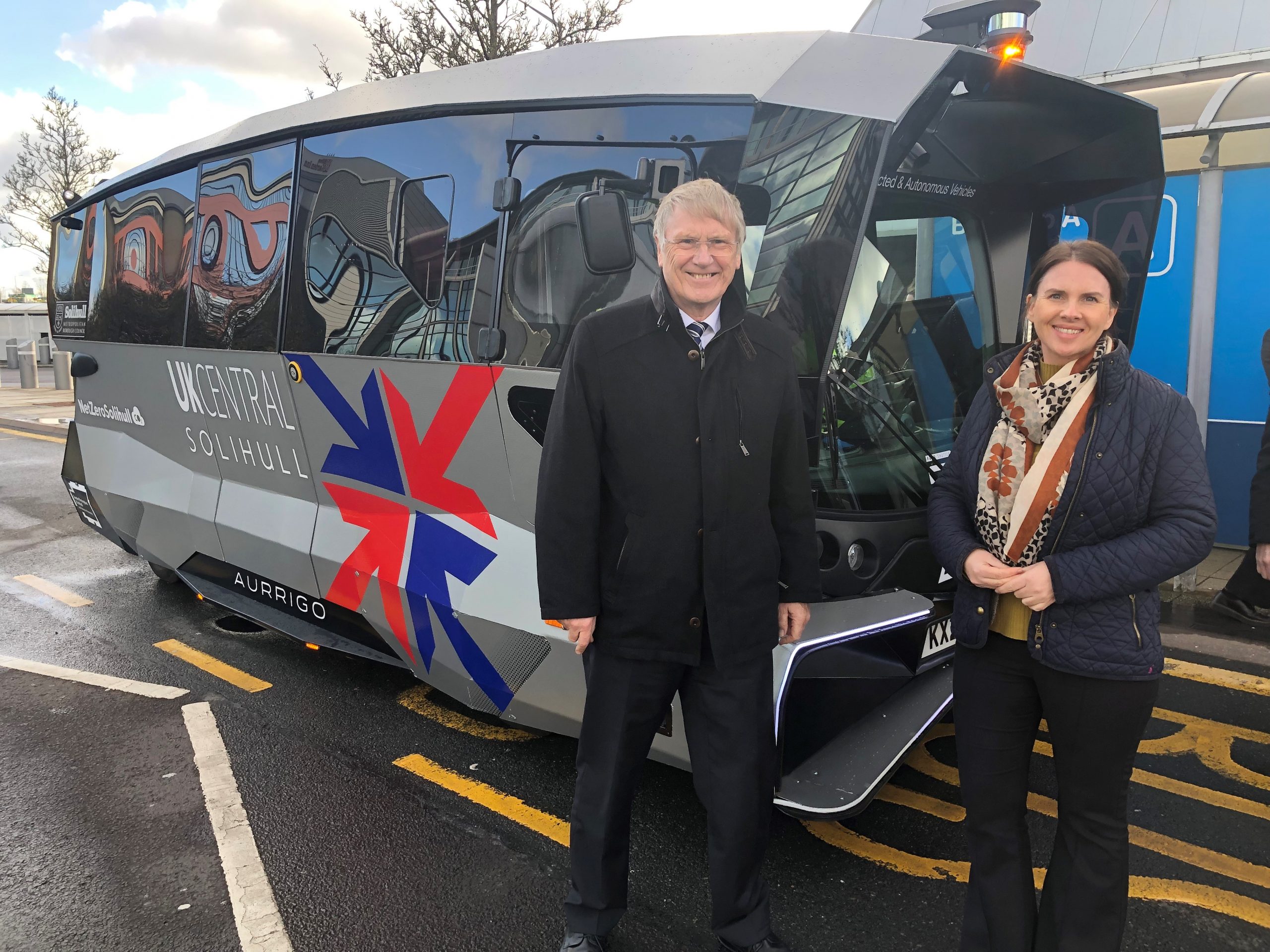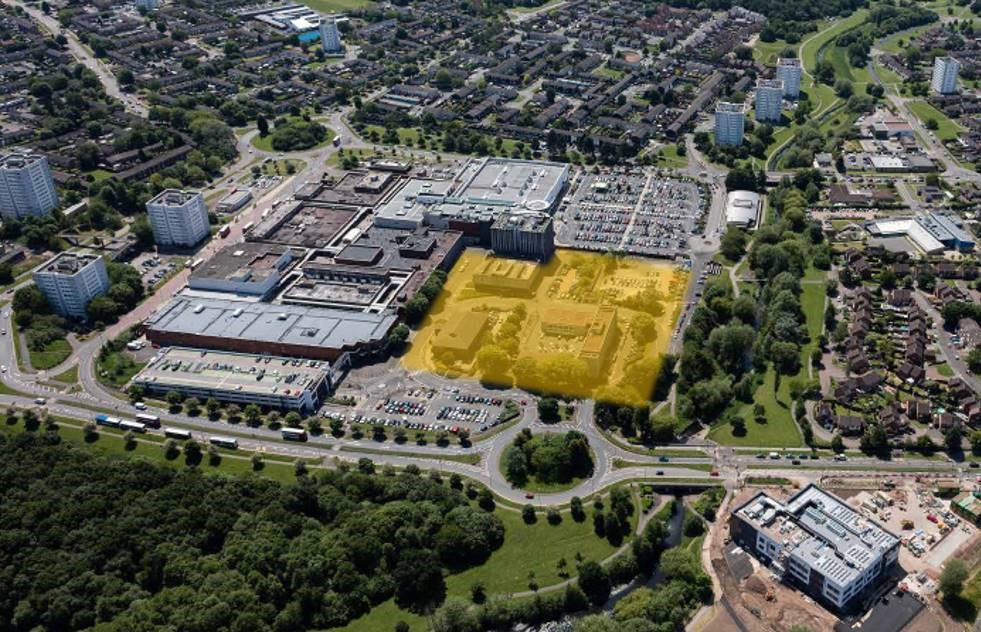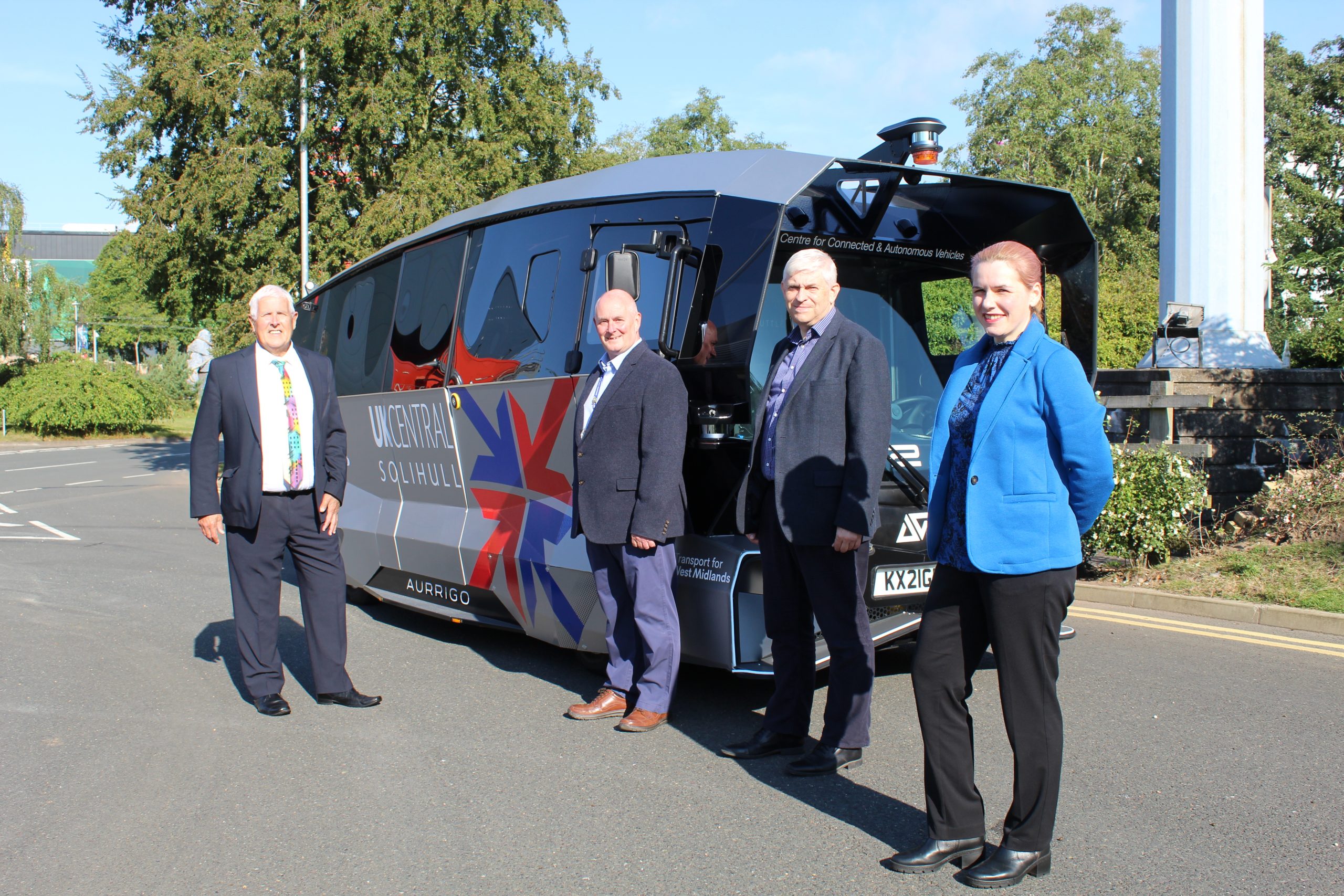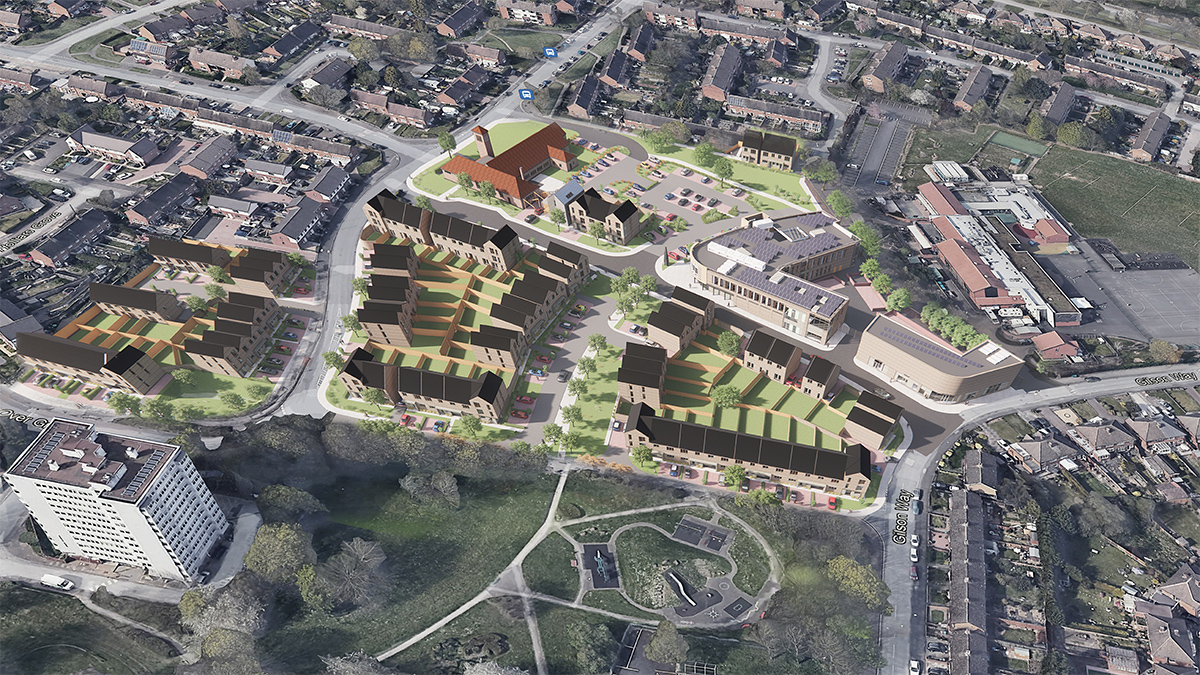
A game changing £95m multi storey car park (MSCP) freeing up 30 hectares of developable land will be built alongside the HS2 Interchange Station at Arden Cross after Solihull Council voted to approve planning permission.
Solihull’s Urban Growth Company (UGC), the strategic delivery vehicle set up to maximise the growth opportunities associated with HS2, drew up the plans in conjunction with private and public sector bodies.
The UGC car park plans help to enable the creation of a world-class opportunity for new homes and jobs at Arden Cross, part of the wider UK Central Hub and right next to the new Interchange station, just minutes from the existing Birmingham International station and airport thanks to a new automated people mover.
Located at the £3.2 billion, 140-hectare Arden Cross development adjacent to the M42, NEC and Birmingham Airport, the UGC’s plans consolidate previous proposals for 7,500 surface car parking spaces associated with the Interchange Station. By freeing up valuable developable land for more commercial development and housing, the MSCP unlocks wider plans for the area which will deliver game changing economic and social benefits for the region and the UK.
The 4,000 space MSCP will be over nine floors, with two floors below ground and facilities for 400 electric vehicle charging points, as well as connected-autonomous vehicles, built in. The plans also include a ‘Mobility Hub’ featuring cycle and scooter hire.
A recent review of parking provision has identified a potential reduction in the required number of parking spaces for HS2 from the original forecasts published more than ten years ago. The reduction is partly driven by changes in travel habits with greater use of things like public transport, as regional and national transport policies promote modal shift away from the car.
The decision to reduce the number of car parking spaces to an initial 4,000 in a sustainable new building has been taken in conjunction with the Department for Transport. There will also be an additional 500 surface level parking spaces alongside the MSCP which in the future could be turned into a second, 3,000 space multi storey car park if required.
Councillor Ian Courts, Leader of Solihull Council, said:
“Serving the new Interchange station and surrounding Arden Cross development, this key piece of infrastructure will help to unlock the potential of the wider UK Central Hub and capitalise on its position as one of the best-connected locations in Europe.
“Maximising the obvious economic and employment benefits of HS2 coming to Solihull is a priority for the Council, but so is protecting and enhancing the distinctive character of our borough. Focusing on the efficient development of this key site will not only deliver new homes, jobs and investment but also help to relieve the pressure on other areas of our green belt in Solihull.”
Jonathan Bretherton, Managing Director at the UGC, said:
“We warmly welcome the council’s decision to support this key part of the development of the new HS2 Interchange Station at Arden Cross.
“This vote to approve is hugely significant in unlocking new jobs, opportunities, and economic growth for the region – it is about so much more than just a car park. By freeing up more land for employment use on the Arden Cross site, we are facilitating a greater economic impact for the region.
“This is testament to the public and private sectors working together. This wouldn’t be possible without the £50m grant from central government and the £45m loan facility from the West Midlands Combined Authority to make the MSCP happen, with the funds subject to confirmation next summer.”
Solihull Council is striving to be a net zero borough by 2040 and is supporting a series of major proposals for UK Central to create green and sustainable new places to live and work.
Construction of the MSCP will be timed to support the opening of HS2 from 2029-2033.
International infrastructure, engineering and construction firm Vinci was announced as the design and build contractor for the project earlier in the year and have since been working up the detailed design. Additional planning, architectural and landscaping support is being provided by Cundall, Associated Architects and Fira.
News item taken from: Approval for ‘game changing’ car park releasing land at Arden Cross | Urban Growth Company (ugcsolihull.uk)
